Planning a trip to the Philippines? Curious about the visa application process? Getting a visa is key for a hassle-free entry. Whether it’s for fun, work, or study, it’s important. But, the process can seem complex. How do you start?
Don’t stress, we’re here to help. This guide will take you through the visa process step by step. We’ll cover everything from the visa policy to what documents you need. Our guide is here for both new and seasoned travelers. We want to make sure you have all you need for a successful visa application.
So, are you ready to start your Philippine adventure? Time to jump in!
Key Takeaways:
- It’s key to understand the Philippine visa policy to know if you need a visa.
- There are different visas available including tourist, work, and student visas.
- To apply, collect the needed documents and submit your application to the embassy or consulate.
- Know the requirements for different types of visas, like non-immigrant and non-quota immigrant visas.
- Apply for your visa early to make sure it’s processed before your trip.
Understanding the Philippine Visa Policy
Planning a trip to the Philippines needs some homework on its visa policy. This policy differs based on where you are from. Some travelers can enter the Philippines without a visa, while others must get one beforehand.
Those from countries that don’t need a visa can stay for up to 30 or 59 days. This list includes the USA, UK, Australia, Canada, and more. Still, to enter without a visa, you need a valid passport, proof of your next destination, and enough money for your visit.
“The Philippines welcomes travelers from around the world, offering visa-free entry to citizens of many countries, promoting international tourism and cultural exchanges.”
If your country isn’t visa-exempt, you have to apply for a visa. The needs for this visa can change, so checking with the Philippine embassy or consulate is wise. Generally, you’ll need a filled-out visa form, a passport that’s valid for 6 more months, proof of money, and a ticket home or to your next destination.
Getting a visa takes time, often weeks or months, based on where you live. It’s smart to start planning your trip well ahead. This way, you avoid any stress of last-minute visa worries.
Knowing and following the Philippine visa policy will help make your trip smooth. It’s key to enjoying your time in the beautiful islands of the Philippines.
Visa Policy for the Philippines
| Visa Type | Visa Duration | Countries Eligible for Visa-Free Entry | Visa Requirements for Non-exempt Countries |
|---|---|---|---|
| Tourist Visa | 30-59 days, depending on nationality | Varies (e.g., United States, United Kingdom, Australia, Canada) | Completed visa application form, valid passport, proof of financial stability, return or onward ticket |
| Work Visa | Validity varies depending on employment contract | Not applicable | Employment contract, medical clearance, additional documents as required |
| Student Visa | Duration of study program | Not applicable | Enrollment in an accredited educational institution, proof of financial capacity, medical clearance |
Types of Visas for the Philippines
Traveling to the Philippines means getting the right visa. There are many visas the Philippines offers. They cover needs like tourism, work, and education. For tourists, the Temporary Visitor’s Visa is common. It lets you stay up to 59 days. If you’re looking to work or study, long-term visas are there for you.
Here are some key visa types for the Philippines:
Tourist Visa
The Philippines has a tourist visa known as the Temporary Visitor’s Visa. It’s for those visiting for fun. You can see the stunning beaches, historic places, and lively culture. This visa usually allows a 59-day visit. Yet, you can ask for more time if needed.
Work Visa
For work in the Philippines, a work visa is a must. The type you need depends on your job or employer. You usually get this visa with help from a Philippine employer. Or through a job offer from a local company.
Student Visa
Want to study in the Philippines? You’ll need a student visa. This lets international students join schools or universities. To get one, show you’re enrolled in a Philippine educational institution. You also must meet academic and money requirements.
Other Visa Types
There are more visas apart from those for tourists, workers, and students. For example, there are visas for conference goers, religious participants, and cultural exchange folks. Each has different rules and steps to apply. Always check with the Philippine embassy for all you need to know.
“The Philippines offers various visas. These include ones for tourists, workers, and students.”
How to Apply for a Philippines Visa
To get a Philippines visa, follow certain steps carefully. With the right documents and following instructions, you’ll avoid delays. This makes the visa application process smoother.
To apply for a Philippines visa, please follow the steps outlined below:
- Gather the Required Documents:
- Ensure your passport is valid for six months beyond your Philippines stay.
- Fill out the visa application form from the Philippine embassy’s official website.
- Prepare supporting documents, like travel purpose proof, financial capability, and where you’ll stay.
- Take all your documents and submit them to the Philippine embassy in your country.
- Check the embassy’s guidelines carefully, ensuring all documents are correct and included.
- Your application will be processed. This time varies due to many factors.
- The embassy will check your documents and decide if you can get a visa.
- Check your application’s status online or contact the embassy for updates.
- The embassy will let you know if your visa application was successful.
- If approved, you’ll get pickup instructions. If denied, they’ll explain why.
Applying for a Philippines visa means paying close attention to all the details. By following the steps and giving all needed documents, you better your chances of getting a visa. This is key for planning your trip to the Philippines.
For more info on the visa application, check the Philippine embassy’s website in your country.
Visa Requirements for Non-Immigrant Visas
If you’re planning a temporary trip to the Philippines, you might need a non-immigrant visa. This could be for travel, business, or visiting loved ones. Different trips may need different visa requirements.
To get this visa, some key things are generally needed:
- A completed visa application form
- A valid passport
- Proof of financial capability
- A return ticket
These are just the basic needs. You might have to provide more, depending on your trip’s purpose. Always check with the Philippine embassy or consulate in your country for the full list and specific advice.
For tourists, showing you can afford your trip is crucial. This might mean bank statements, letters of support, or proof of income. It’s all about proving you have enough money for your stay.
Make sure every detail on your visa form is correct and complete. Mistakes or missing info can cause delays or even a denial. Always double-check your form to ensure everything is filled out right.
Note: Visa rules can change. Always look for the latest requirements at your Philippine embassy or consulate before applying.
Having the right documents ready boosts your visa application’s success chance. It’s also smart to apply early. This gives you plenty of time for the processing.
Visa Requirements for Non-Quota Immigrant Visas
Non-quota immigrant visas let people live in the Philippines permanently. They are for those with Filipino family ties, married to Filipinos, or employed in the Philippines. You’ll need a visa form, valid passport, and proof of relationship or job.
Getting a non-quota immigrant visa is important for living in the Philippines forever. Make sure you have all documents ready. This makes your application more likely to succeed.
The first step is filling out a visa application form. Get this form from the Philippine embassy or their official website. Fill it out correctly to avoid problems.
Having a valid passport is also essential. Your passport must be good for six months after you plan to stay. It should be undamaged and unaltered as well.
You also need to show proof of your relationship or job. For family ties, bring marriage or birth certificates, or an affidavit of support. For work, bring a contract or employment certificate.
Sometimes, you need extra documents for your visa application. These could include financial statements or medical certificates. The exact papers depend on your visa type.
Be aware, Philippine immigration may ask for more documents or an interview. Always give true information and respond quickly to their requests. This helps avoid issues with your application.
After sending all your documents, Philippine immigration will review your visa application. The time it takes can vary. Apply early to avoid delays before your trip.
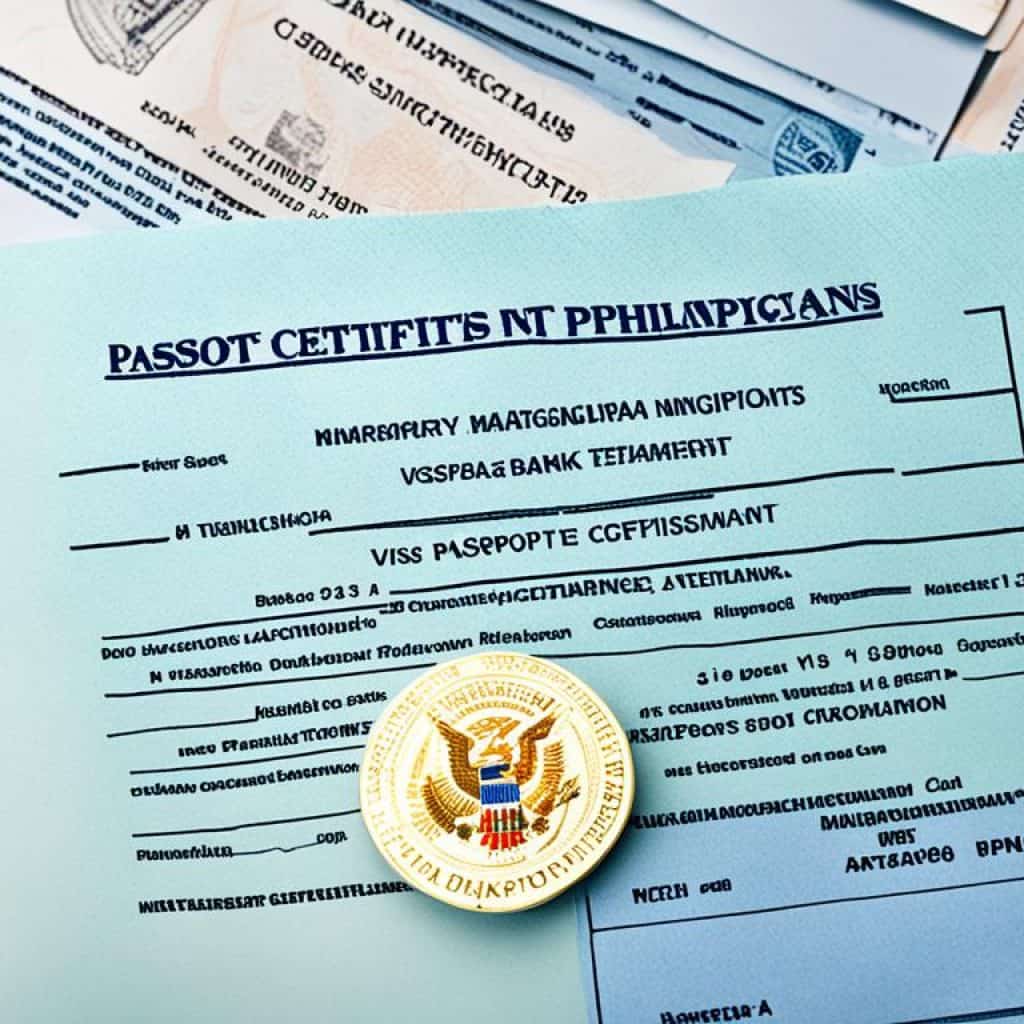
Understanding Visa Fees for the Philippines
Applying for a visa to the Philippines requires knowing about the fees. These fees vary by visa type and where you’re from. You must pay these fees to submit your application.
Always check the latest visa fee rates before applying. This ensures you have the right amount ready. The visa fee is non-refundable, even if your application is denied or if your visa is delayed.
Knowing the fees helps you plan your budget. This planning prevents any unexpected costs or delays in your application.
| Visa Type | Fee |
|---|---|
| Tourist Visa | $50 |
| Business Visa | $75 |
| Student Visa | $100 |
| Work Visa | $150 |
These fees are examples and can change based on the visa and your nationality. Find specific fees at the Philippine embassy or consulate’s official website in your country.
The visa fee must be paid in the embassy’s specified currency. Be ready to pay in cash or the accepted payment method on their website.
After getting the needed funds and confirming your visa fee, you can apply. Understanding these fees and having the funds ready gets you closer to getting your visa.
Downloadable Forms for the Philippines Visa Application
The Philippines embassy or consulate offers visa application forms on their website. You can download and print these forms easily. Make sure to use the latest form and fill it out completely.
The form asks for your personal details, travel plans, and visit purpose. This helps in processing your application.
Getting and filling out the visa form is your first step for a visa. By giving the needed information, you can make the process easier.
Tips for a Successful Philippines Visa Application
Applying for a visa to the Philippines can be easy if you follow these tips:
- Submit all required documents: Gather all needed documents for your application. These can include your passport, application form, and other supporting documents. Check the embassy or consulate website for a complete list of what you need.
- Provide accurate information: Fill out your visa application form with care. Before you submit, make sure everything is correct. This helps avoid delays or rejections because of wrong or missing information.
- Meet the eligibility criteria: Make sure you know the visa requirements. Check that you meet all criteria, like age and financial capability. Knowing these can help you apply successfully.
- Apply well in advance: Apply for your visa early, before your trip. This gives you enough time for processing. Wait for your visa before planning your travel.
- Follow instructions carefully: Read and follow the application instructions carefully. Pay attention to any specific guidelines. Not following these can lead to your application being rejected.
- Seek professional assistance if needed: Consider getting help from a visa agency or lawyer if you’re confused. They can guide you, check your application, and improve your chances of success.
“Submitting all required documents accurately and meeting the eligibility criteria are key factors in a successful Philippines visa application.”
By following these tips, you can confidently apply for a Philippines visa. This will improve your chance of getting the visa for your trip.
Visa Application Checklist
| Documents | Requirements |
|---|---|
| Valid passport | Must have at least six months’ validity beyond the intended stay. |
| Completed visa application form | Fill out the form accurately and completely. |
| Supporting documents | Provide any additional documents required for your specific visa type, like proof of financial capability, work letter, or invitation. |
| Passport-sized photo | Follow the photo specifications from the embassy or consulate. |
| Visa application fee | Pay the required fee for applying. Check the embassy or consulate website for fee amounts and how to pay. |
Always double-check the visa application checklist on the embassy or consulate website. This ensures you have the most recent information specific to your country or visa.
Visa Status and Processing Times
After applying for a visa, you might wonder about the status. You can check it online or at the embassy. This way, you’re always up-to-date.
Processing times for visas can change. They depend on many factors, like how many people applied. To avoid stress, apply well before your trip. This ensures you have your visa on time.
Each embassy or consulate has its own time frame. So, it’s smart to check with them for the most precise info.
If processing times change, staying informed is key. Checking your application’s status helps you make travel plans smoothly.
What to Do If There Are Delays
Delays happen, but try to stay calm. Sometimes, visa processing can take longer. These delays are often out of your hands.
Remember that staying calm and proactive in such situations can help you navigate any challenges and ensure a better overall experience.
If your visa is delayed and you have urgent travel, contact the embassy. They can offer more help and info for your situation.
Being aware of the processing times and following up can minimize travel issues. It makes your trip to the Philippines more enjoyable.
Visa Approval and Entry into the Philippines
Getting your visa approved is a great first step. But remember, it doesn’t mean you’ll automatically get into the Philippines. Immigration officers at the entry point have the final say. They decide who can enter.
When you arrive, have all important papers with you. This includes your visa, passport, and any documents asked for during your visa application. These are crucial for a smooth entry process.
At the port of entry, immigration officials might ask you questions. It’s important to answer honestly and clearly. They’re checking to make sure your visit is safe and legal. Helping them understand your visit makes entering easier.
If immigration officers think there’s something wrong, they can deny you entry. That’s why following visa rules and having your documents ready is key. This ensures you meet all entry requirements.
To avoid stress when entering the Philippines, get to know the country’s entry rules ahead of time. Being prepared means knowing what to expect. Having the right documents can make your entry smooth. Then, you can start enjoying the Philippines right away!
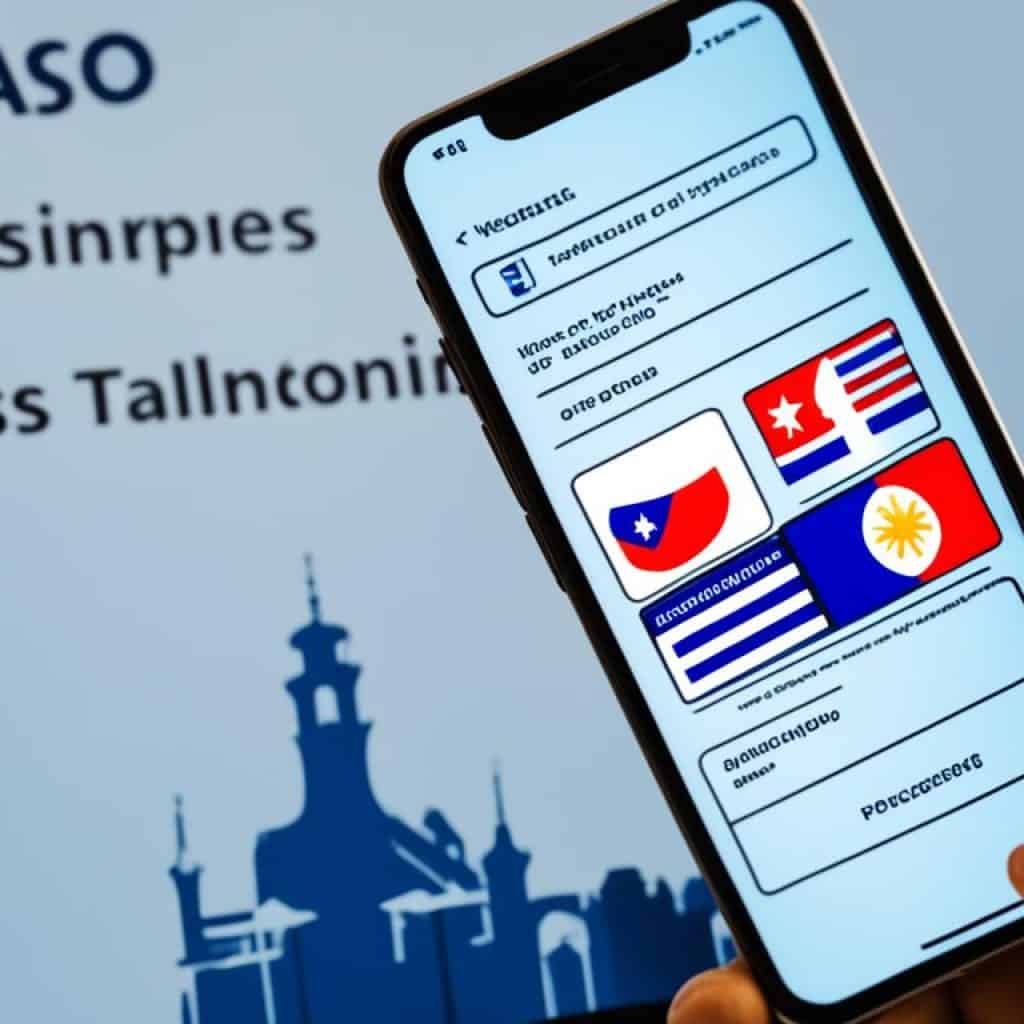
| Essential documents to have upon entry: | Additional supporting documents |
|---|---|
|
|
Visa Extensions and Stay in the Philippines
If you need to stay longer in the Philippines than your visa allows, you can apply for an extension. This is done through the Bureau of Immigration in the Philippines. Make sure to apply before your current visa expires to avoid problems.
The extension process varies depending on your visa type and extension reason. It’s best to know the guidelines and what documents you need. This ensures a smooth process.
Sometimes, you might need more time due to unexpected events, travel issues, or just to see more of the Philippines. Getting a visa extension makes your stay legal and keeps you out of trouble.
Visa Extension Process
To extend your visa, go to the Bureau of Immigration office and submit the required paperwork. You’ll need:
- A completed visa extension application form
- A valid passport
- Proof of your valid visa
- Reasons for needing the extension
- Financial proof to support yourself during your stay
Make sure your application is truthful and all documents are current. Any mistakes or missing items could delay or deny your request.
After you apply, the Bureau of Immigration reviews your case. Processing times can vary. Therefore, submit your application well before your visa expires. If approved, you can stay longer and enjoy more of what the Philippines offers.
While extending your stay is possible, follow the immigration rules carefully. Overstaying without a proper visa or extension leads to fines, deportation, and future entry problems.
Applying for a visa extension is wise if you want more time in this beautiful country. By doing everything correctly and respecting the laws, you can enjoy your extended visit to the fullest.
Visa-Free Privilege for Balikbayan
The visa-free privilege of Balikbayan is for ex-Philippine citizens, their spouses, and kids. They can enter the Philippines without a visa for a certain time. Always check eligibility and requirements before your trip.
Thanks to this rule, former citizens and their families can visit the Philippines easily. This benefit lets them stay in the Philippines for a fixed period.
This privilege is great for those wanting to reconnect with their roots or visit loved ones. You can travel to the Philippines easily and enjoy your stay.
Remember, the stay duration and requirements might change. So, it’s key to check everything before you go. This ensures a trouble-free and fun journey.
Make the most of this chance and feel the Philippines’ warmth. See beautiful places, dive into the culture, and make memories.
Important Reminders and Considerations for Visa Applicants
When you apply for a visa to visit the Philippines, remember key tips for a smooth process:
1. Avoid Purchasing Airline Tickets Until Visa Approval:
Don’t buy airline tickets before your visa gets approved. Wait for the decision to avoid extra expenses. This is vital in case your application is denied.
2. Do Not Rely on Expedited Processing:
Even though fast processing sounds good, it doesn’t ensure visa approval or quick processing. Stick to the standard process and give your application enough time for review.
3. Understand Non-Refundable Visa Fee:
Understand that you can’t get the visa fee back once you pay it. This is true whether your visa is approved or not. So, be sure of your application before you pay.
4. Ensure Documentation Accuracy:
Having correct and full documents is key to a successful visa application. Any wrong or missing details can cause delays or denial. Double-check your documents to make sure they’re correct and complete.
“Being cautious and prepared is best for the visa application process. Following these tips helps avoid extra costs, problems, and delays.” – Philip Wong, Immigration Expert
5. Stay Updated and Seek Professional Assistance:
The visa rules and requirements can change. Always check the latest updates and consult official sources like the Philippine embassy. Getting help from visa experts or consultants can also guide you well.
| Important Reminders: |
|---|
| Do not purchase airline tickets until visa approval. |
| Do not rely on expedited processing. |
| Understand that the visa fee is non-refundable. |
| Ensure accuracy and completeness of documentation. |
| Stay updated with the latest information and seek professional assistance. |
Contact Information and Resources
Need help with the Philippines visa process? Reach out to the Philippine embassy or consulate in your country. They can give specific advice and answer questions. You can also find forms and visa requirement info online. Always check the official sources for correct, current information.
Embassy Contact Information:
- Philippine Embassy: Contact your local Philippine embassy for visa application inquiries and assistance.
- Consulate General: You can also reach out to the Consulate General of the Philippines in your area for visa-related concerns.
“The embassy and consulate are valuable resources for visa applicants, providing guidance and answering any questions.”
Online Resources:
Looking for reliable online visa info for the Philippines? Here are some resources that can help:
- Official Philippines Embassy Website: Visit the official website of the Philippine embassy or consulate in your country for detailed information on visa application requirements, forms, fees, and more.
- Department of Foreign Affairs: The Department of Foreign Affairs website features comprehensive information on visa policies, travel advisories, and consular services.
Make sure to use these online resources and talk directly with the embassy or consulate. This way, you’ll get the most accurate and current information for your visa application.
Conclusion
Applying for a Philippines visa might feel tough, but with good prep, it’s easier. Check the visa needs and fill out the forms right to boost your success chances. Make sure you provide every document needed and give yourself plenty of time to avoid delays.
Being organized is crucial for the Philippines visa process. It’s important to have all your papers ready. This includes a valid passport, the application form, and supporting documents. A well-prepared application means a stress-free journey.
If you’re visiting, working, or studying in the Philippines, knowing how to apply for a visa is key. This guide helps you understand every step of the process. With this info, you can tackle the visa application with confidence.
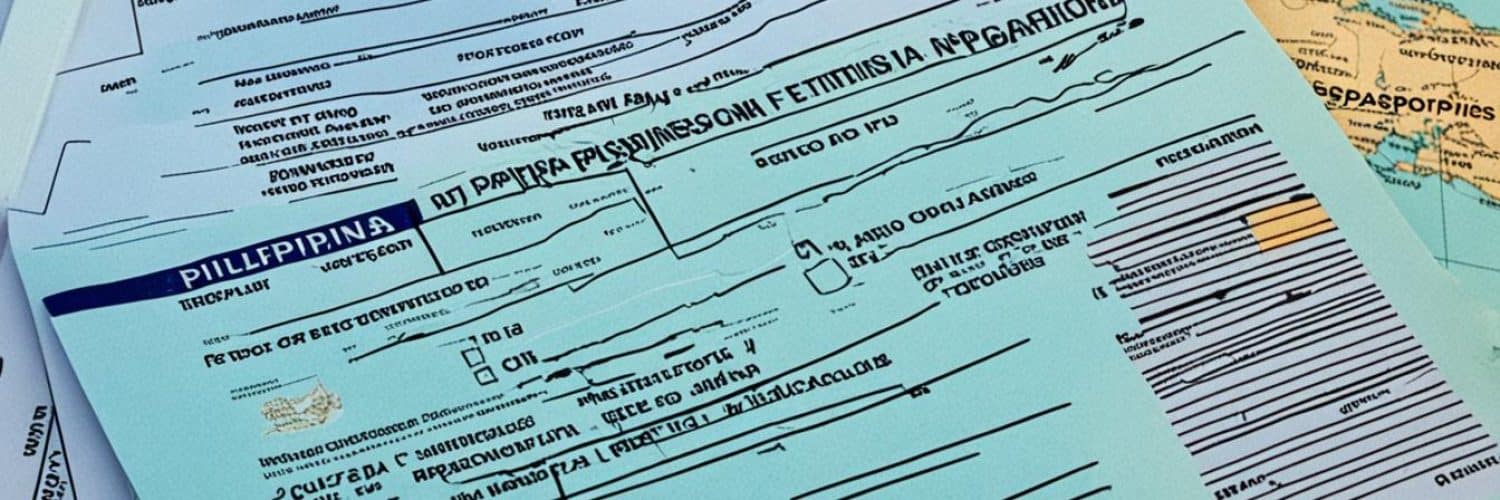

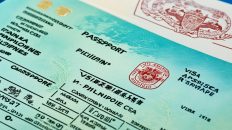
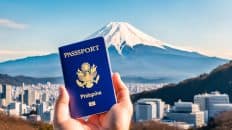














Add comment